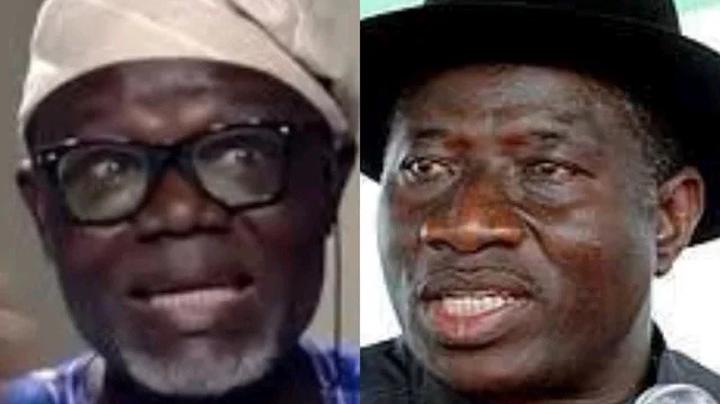The Deputy National Chairman of the Labour Party, Ayo Olorunfemi, has voiced deep concern over the state of Nigeria’s economy, with particular emphasis on the alarming depreciation of the naira against foreign currencies.
In a recent interview aired on TVC, Olorunfemi compared the country’s present economic situation with what he described as more stable years under former President Goodluck Jonathan, highlighting the widening gap in currency value, especially in relation to neighboring West African economies.
Olorunfemi drew attention to the exchange rate between the Nigerian naira and the West African CFA franc, the official currency used in countries like the Republic of Benin, Togo, and several other Francophone nations.
According to him, the value of the naira has diminished so severely that what once could be exchanged for a substantial amount of CFA is now barely worth a third of that amount.
“In the era of President Goodluck Jonathan, ₦200,000 could get you roughly CFA 1 million across the border in Benin Republic,” he said. “Today, the same ₦1 million barely fetches CFA 300,000. That is a clear and painful demonstration of how much the naira has collapsed.”
The Labour Party leader framed this currency decline as a symbol of broader economic failure.
He suggested that this deterioration in value is not merely an issue for currency markets, but a stark indicator of the diminishing purchasing power of ordinary Nigerians, many of whom are already grappling with inflation, food insecurity, and joblessness.
“Are we really progressing?” Olorunfemi asked pointedly. “What we are witnessing is not just a currency crisis, it’s an economic reality that touches the lives of every Nigerian.
The middle class is disappearing, and the poor are getting poorer.”
His remarks come at a time when the country’s economy continues to struggle under the weight of multiple crises.
Inflation has remained stubbornly high, the cost of essential goods and services has spiked, and the exchange rate of the naira against major global currencies such as the U.S. dollar, euro, and British pound continues to slide.
Many economists attribute the ongoing currency depreciation to Nigeria’s heavy reliance on imports, dwindling foreign reserves, and inconsistent monetary policies.
The Central Bank of Nigeria (CBN) has implemented several reforms in recent months, including the unification of exchange rates and moves toward a more market-driven forex regime.
However, these policies have yet to produce visible relief for the average citizen.
Olorunfemi urged Nigerians to take a critical look at the current administration’s handling of the economy and consider whether the country is on the right path.
He emphasized that the responsibility to demand change lies in the hands of the people.
“The choice is now for Nigerians,” he said. “Are we going to continue in this direction, or are we ready to chart a new course that prioritizes economic stability, currency value, and the welfare of the citizens?”
He also criticized what he called the “disconnect between economic policy and real-life impact,” pointing out that, despite government assurances of progress, many Nigerians are unable to afford basic necessities.
The current state of affairs, he argued, should trigger a national conversation about leadership, accountability, and the kind of economic future Nigerians want.
With general elections still some time away, Olorunfemi’s comments appear to signal the Labour Party’s intention to keep the economy at the forefront of public discourse.
The party, which rose to prominence during the 2023 general elections with the popular candidacy of Peter Obi, has continued to challenge the ruling All Progressives Congress (APC) on issues of governance, transparency, and economic performance.
As Nigeria continues to battle with fluctuating exchange rates, high inflation, and growing public dissatisfaction, political leaders like Olorunfemi are likely to intensify their scrutiny of the administration’s economic strategies.
Whether this results in a shift in public opinion remains to be seen, but one thing is certain: the value of the naira and what it says about Nigeria’s economic trajectory is now a central concern in the national conversation.
Find Verified News At Your fingertips Click The Button Below

